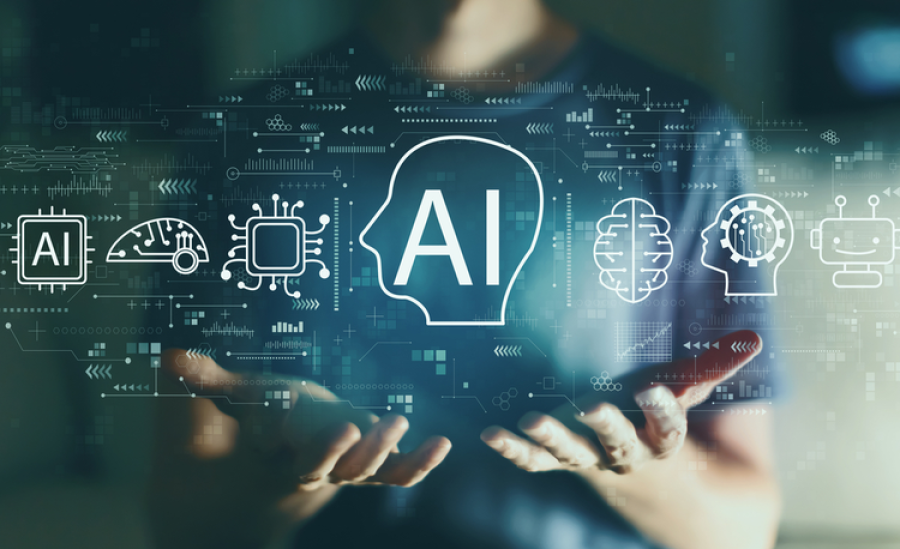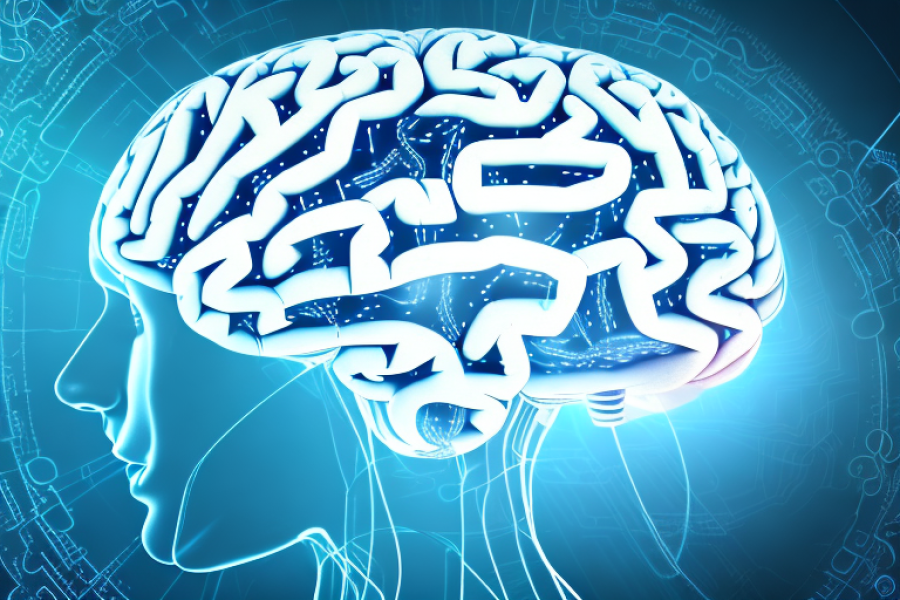Revolutionising PPC and Ad Campaigns through AI
In the dynamic landscape of digital marketing, staying ahead of the curve is paramount for businesses striving to maximise their online presence and engagement. One of the game-changers in the realm of paid advertising is Content AI (Artificial Intelligence). This transformative technology is reshaping the way businesses approach Pay-Per-Click (PPC) and ad campaigns, offering unparalleled capabilities in content creation, targeting, and optimisation. In this comprehensive exploration, we'll delve into the multifaceted ways in which Content AI is revolutionising PPC and ad campaigns, empowering businesses to achieve greater reach, relevance, and return on investment.
Section 1: Unveiling Content AI in PPC
1.1 Understanding Content AI in the PPC Context
Content AI, in the context of PPC and ad campaigns, refers to the integration of artificial intelligence technologies into the creation, management, and optimisation of advertising content. This encompasses a spectrum of AI-driven applications, from natural language processing and sentiment analysis to machine learning algorithms that dynamically adjust ad targeting based on user behaviour.
1.2 The Evolution of PPC
PPC advertising has evolved significantly over the years, moving beyond simple keyword targeting to more sophisticated audience-centric approaches. Content AI represents the next frontier in this evolution, offering businesses the ability to create highly relevant and engaging ad content that resonates with their target audience.
Section 2: Transformative Content Creation
2.1 Automated Ad Copy Generation
One of the primary ways Content AI transforms PPC is through the automated generation of ad copy. AI algorithms can analyse vast datasets, including user behaviour, market trends, and competitor strategies, to craft compelling and relevant ad copy. This not only accelerates the content creation process but ensures that ad messages align seamlessly with the preferences and expectations of the target audience.
2.2 Personalised Ad Content
Content AI excels in personalisation, allowing businesses to tailor ad content to individual users. By analysing user data, including browsing history, demographics, and preferences, AI algorithms can generate personalised ad variations that speak directly to the unique needs and interests of each user. Personalisation enhances the overall user experience and significantly increases the chances of conversion.
2.3 Multilingual Ad Campaigns
In a globalised digital landscape, businesses often target audiences that speak multiple languages. Content AI facilitates the creation of multilingual ad campaigns by leveraging language processing capabilities. This ensures that ad content is not only translated accurately but also culturally adapted to resonate with diverse audiences, thereby maximising the effectiveness of international PPC efforts.
Section 3: Precision Targeting and Audience Insights
3.1 Advanced Audience Segmentation
Content AI augments PPC by enabling more advanced audience segmentation. Machine learning algorithms analyse user behaviour, identifying patterns and segments that may not be immediately apparent through traditional methods. This granular understanding allows businesses to create highly targeted ads that resonate with specific audience segments, improving ad relevance and engagement.
3.2 Predictive Audience Targeting
One of the transformative aspects of Content AI is its predictive capabilities. By analysing historical data, AI algorithms can predict user behaviour and preferences, allowing businesses to proactively target audiences likely to engage with their ads. This predictive targeting not only enhances the efficiency of PPC campaigns but also contributes to cost savings by focusing resources on the most promising audience segments.
3.3 Real-time Adjustments
In the fast-paced world of digital advertising, real-time adjustments are crucial for campaign success. Content AI enables dynamic adjustments to ad targeting based on real-time user interactions and campaign performance. For example, if a particular audience segment is responding positively to an ad, the AI system can allocate more budget to target similar users, maximising the impact of the campaign.
Section 4: Enhanced Ad Creatives and Formats
4.1 Dynamic Ad Creatives
Content AI introduces the concept of dynamic ad creatives, where elements of the ad content are dynamically generated based on user data. For instance, an e-commerce ad can dynamically showcase products based on a user's browsing history or previous purchases. This dynamic adaptation ensures that the ad content remains highly relevant, increasing the likelihood of conversion.
4.2 Video and Visual Content Optimisation
The rise of visual content in digital advertising is undeniable. Content AI extends its transformative influence to video and visual ad formats by optimising elements such as imagery, colour schemes, and video sequences based on user preferences. This optimisation contributes to higher engagement rates and improved ad performance in visually-driven platforms.
4.3 A/B Testing Automation
Traditionally, A/B testing involved manual iterations of ad creatives to identify the most effective variations. Content AI automates the A/B testing process by rapidly testing multiple ad creatives, headlines, or calls-to-action based on predefined criteria. This automation accelerates the optimisation process, allowing businesses to quickly identify and implement high-performing ad variations.
Section 5: Data-Driven Decision Making
5.1 Comprehensive Performance Analytics
Content AI enhances PPC campaigns by providing comprehensive performance analytics. Machine learning algorithms analyse vast datasets to extract actionable insights related to ad performance, user behaviour, and market trends. These insights empower businesses to make informed decisions, refine their PPC strategies, and allocate resources more effectively.
5.2 Predictive Performance Modeling
Beyond retrospective analytics, Content AI engages in predictive performance modelling. By extrapolating from historical data, AI algorithms can predict the potential performance of new ad creatives or campaign strategies. This predictive modelling reduces the reliance on trial and error, allowing businesses to launch PPC campaigns with a higher likelihood of success.
5.3 Fraud Detection and Prevention
Ad fraud is a persistent challenge in digital advertising. Content AI contributes to fraud detection and prevention by employing machine learning algorithms that identify irregular patterns in user interactions. This proactive approach helps mitigate the impact of ad fraud, ensuring that PPC budgets are allocated to genuine user engagements.
Section 6: Overcoming Challenges and Ethical Considerations
6.1 Addressing Bias in AI Algorithms
One of the challenges associated with Content AI in PPC is the potential for algorithmic bias. AI algorithms learn from historical data, and if that data contains biases, the algorithms may perpetuate them. It's crucial for businesses to implement measures to address bias, including regular audits of AI models and the incorporation of diverse datasets.
6.2 Balancing Automation and Human Oversight
While Content AI streamlines many aspects of PPC campaigns, a balance between automation and human oversight is essential. Some strategic decisions, especially those involving brand voice, messaging nuances, and high-level campaign strategy, may require human input. Businesses should establish clear protocols for human oversight to ensure a harmonious blend of AI-driven automation and human expertise.
6.3 Ensuring Transparency and Accountability
Transparency in AI-driven processes is critical for building trust, both internally and with consumers. Businesses utilising Content AI in PPC should prioritise transparency by clearly communicating how AI is used, what data informs the algorithms, and the ethical considerations taken into account. This transparency fosters accountability and aligns with evolving regulatory standards.
Section 7: Future Trends in Content AI and PPC
7.1 Conversational AI in Advertising
The integration of conversational AI in advertising is an emerging trend. Chatbots and virtual assistants powered by AI can engage users in real-time conversations, providing information, addressing queries, and even facilitating transactions within the ad environment. This conversational approach enhances user engagement and provides a seamless experience.
7.2 AI-Generated Visuals and Creatives
The future of Content AI in PPC includes advancements in AI-generated visuals and creatives. AI algorithms will become increasingly proficient in creating visually stunning and contextually relevant ad creatives, reducing the reliance on manual design processes. This shift is expected to result in more visually appealing and impactful ads.
7.3 Cross-Channel Integration
Content AI will play a pivotal role in enabling cross-channel integration in PPC campaigns. AI algorithms can analyse data from various channels, including social media, search, and display advertising, to create cohesive and synchronised campaigns. This integrated approach ensures that businesses maintain a consistent brand presence across diverse digital platforms.
Section 8: The Power of Content AI Unleashed
In conclusion, Content AI represents a paradigm shift in the realm of PPC and ad campaigns. From transforming the way ad content is created and personalised to enabling precise targeting and data-driven decision-making, Content AI unlocks a new era of possibilities for businesses seeking to optimise their digital advertising efforts.
As businesses embrace Content AI, it's essential to navigate the associated challenges with diligence and ethical considerations. Balancing the benefits of automation with human oversight, addressing algorithmic biases, and ensuring transparency are crucial steps in maximising the potential of Content AI in PPC campaigns.
The future promises even greater innovations, with conversational AI, AI-generated visuals, and cross-channel integration reshaping the landscape. Businesses that leverage the transformative power of Content AI in PPC will not only stay competitive in the digital marketplace but also pioneer new standards of relevance, engagement, and success in their advertising endeavours.





